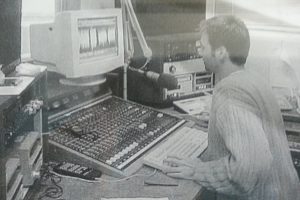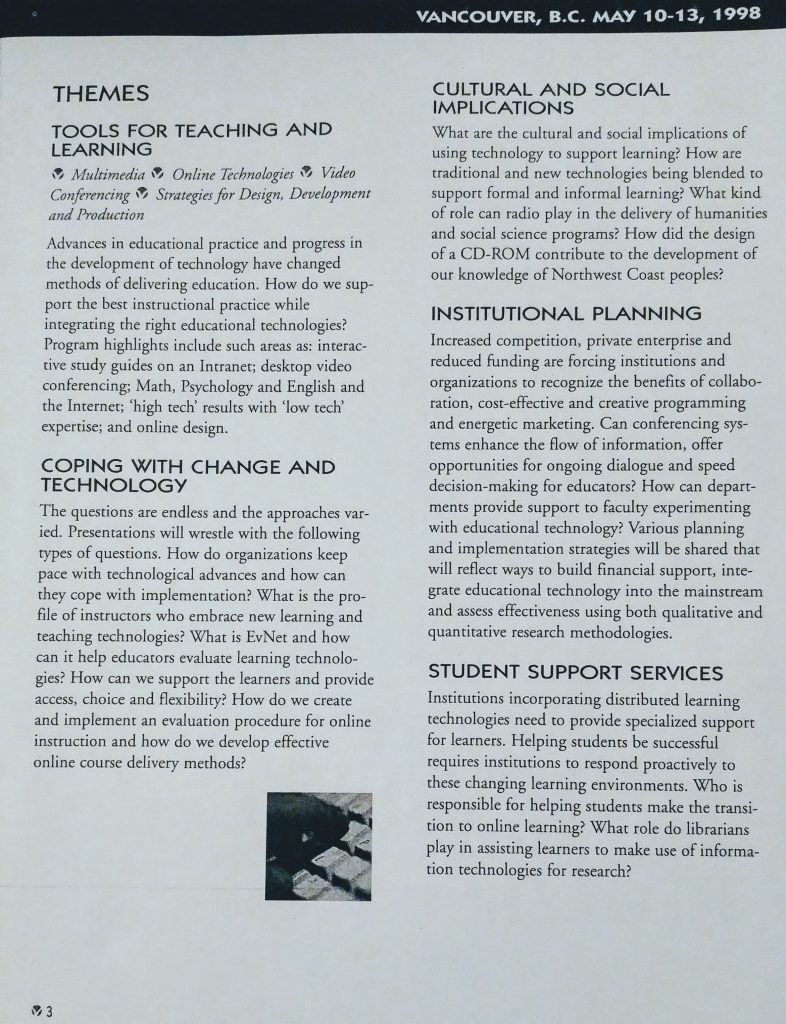Flashback Friday – 1998
As ETUG celebrates 25 years, we are taking the opportunity every Friday to dig into our archives and celebrate our 25 year history. Today’s Flashback Friday heads back in time to 1998.

ETUG chair in 1998 was Heather Schneider from College of the Rockies, and communication among members was done primarily via listsrv with 373 subscribers.
Pop Culture
- Oscar Best Movie: Titanic
- Top-rated TV show: ER
- Billboard Top Album: Titanic soundtrack
Hot Technology Topics
1998 was a big year for technology as the internet boom was in full swing. Steve Jobs had returned to Apple the year before and was starting he reinvention of the company with the release of the very first iMac in 1998. Google, the company, was founded by Stanford University PhD candidates Larry Page and Sergey Brin, and early web designers were grappling with how to deal with the escalating browser wars, in full swing in 1998.
Meanwhile, in education technology, Blackboard released the first version of Learn, and David Wiley released the very first Open Content license.
Workshop Location and Theme
The big ETUG gathering in May 1998 was Connections ’98, held at the Hotel Vancouver, featuring keynote speakers Tony Bates (who was the Director of Distance Education at UBC at the time), Liz-Hammond-Kaarremaa (Director of Educational Technology at Malaspina University College, now Vancouver Island University), William H. Geoghegan (IBM) and Don Doucette (Vice-Chancellor of Education & Technology at Metropolitan Community College).
Hot topics for the ETUG community in 1998 were copyright and intellectual property issues and grappling with the basics of copyright laws and how the Internet was fundamentally altering how educators were thinking about sharing content. Metatags and an overview of IMS was also a topic of conversation, as was the role of BC’s C2T2 (the precursor of BCcampus) in working with faculty to create learning resources. The seeds of OER and inter-institutional sharing of learning resources were being sown.
It was also interesting to note the program themes of 1998 would not be out of place in a 2018 conference, with the community examining not only new tools & technologies, but also the cultural and social implications of technology , including ways technology can be used to better understand Indigenous cultures and issues, student support models, institutional planning, and coping with change.


